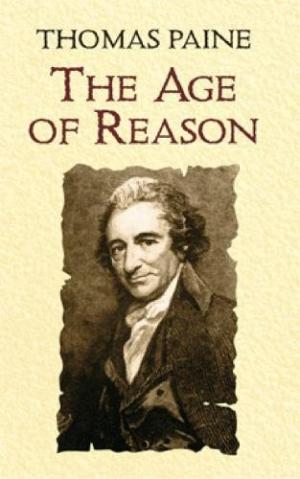The Age of Reason, by Thomas Paine (A Review)
My parents were pastors so I grew up in a very religious household. Although I liked the scholarly nature of bible study, religious belief has never sat well with me. Although my early adulthood was just as steeped in Christian practices--my first two years of college were spent at a Christian school and I worked for five years in IT for the church--I became more and more aware of and confident in my agnostic intuitions and conclusions. It was at this time in my life when I began to seek out avowedly atheistic literature and Tom Paine's The Age of Reason really resonated with me.

This book is not for people incapable of appreciating nuance. This statement is a somewhat contradictory assertion because Paine is not subtle. He pulls no punches in his critique of revealed religion. The nuance comes into play when you realize that Paine is a deist, not an atheist. At the base of his critique is not an unilateral rejection of the existence of God, but rather the conclusion that the scriptures of Judeo-Christian religion are seriously deficient and not divinely inspired.
I find his argument compelling and his approach of using the Bible as evidence against itself ingenious. However, I have three minor criticisms which I do not propose as a refutation.
First, his rhetoric is too inflammatory. He makes it too easy for opponents to dismiss his argument by ignoring its substance and playing the victim to his barbs, just as moderns do today with Dawkins, Hitchens, Harris, et al. Hence my initial invocation of nuance.
Second, the work is uneven. Part 1 suffers from a lack of direct citation of the Bible which is supplied in Part 2. The reason for this is historical--the upheaval of the French Revolution pushed Paine to hurry its composition and publication. This makes Paine sound less evidence-based in Part 1 than he actually is and allows readers to sidestep the meat of his critique contained in Part 2. Sadly, The Age of Reason is often published with only Part 1--as it is in Penguin Classics' Thomas Paine Reader. (I own that book and had to go out of my way to find a complete edition. Thanks Dover Publications!) It's hard to blame Paine though since he wrote Part 1 during the Reign of Terror while fearing for his life, having no access to a Bible, and was arrested shortly after having written it. Keep in mind that while this work might seem atheistic today, at the time he was writing against the atheism of the French Revolution. It seems Paine was able to make enemies of both the atheistic revolutionaries and pious Christians simultaneously. A truly badass move.
Third, he makes some minor mistakes in his Biblical criticism. For example, Paine refers to all four gospel writers as being of the twelve disciples when in fact two (Mark & Luke) are only claimed to be friends of apostles. This isn't important to Paine's thesis since what Paine is attacking is their apostolic authority, which does apply to all four. It is unclear to me whether this is due to his own ignorance, the state of Biblical scholarship at the time, or some combination thereof (surely the former in the above example). These mistakes don't invalidate his argument, but like my #1 criticism, it gives opponents irrelevant things to point at while avoiding Paine's larger points.
Although his rhetoric is often harsh, it is not mere mockery. In fact, his approach takes seriously the claims of divine revelation. He frames his case in the terms dictated by proponents of revealed religion. He points out passages that are contradictory or morally dubious not solely to mock them, but as evidence against the claim of divine origin. Many of these are addressed in one way or another in modern scholarship by source or textual critics. His interpretation of the book of Jonah as a meta-commentary on prophetic literature is an insightful one and shows that he's not just anomaly hunting for sport.
The basis for Paine's deism is natural theology which was a very defensible position in his day. In the 200 years since I think even this rather benign belief has become untenable. The problem of suffering has always been a thorn in the side of theism, but even more so with the advent of evolution since we are now aware just how necessary (and paradoxically pointless) suffering has been to the "creation" of life. This is why I am not a deist, although I am sympathetic to it.
[Amazon]
Fine analysis.